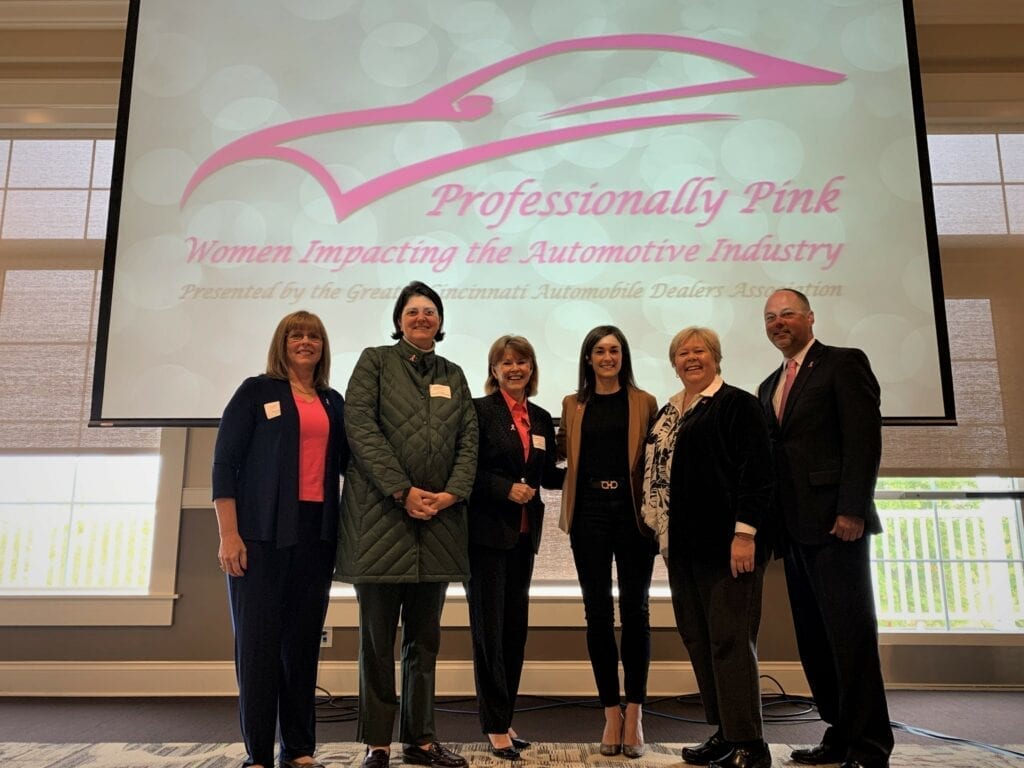





By Shelley B. Fowler
George and Odelia Dolores bought a recreational vehicle from General R.V. Centers, Inc. They claimed that the salesman told them that if they agreed to buy a 2018 Crossfit for $87,000, General R.V. would give them $55,000 in trade-in credit for their Winnebago and Honda truck.
The purchase agreement, however, reflected a purchase price of $100,247. The Doloreses experienced many problems with the RV and sued General R.V. and U.S. Bank, the assignee of their retail installment contract, for violating the Magnuson-Moss Warranty Act, the Michigan Motor Vehicle Sales Finance Act, and the Michigan Motor Vehicle Installment Sales Contract Act and for misrepresentation.
The defendants moved for summary judgment, and the U.S. District Court for the Eastern District of Michigan granted the motion.
The Doloreses claimed that General R.V. breached express and implied warranties under the MMWA. The court noted that the MMWA provides that a supplier may not disclaim or modify any implied warranty if the supplier makes a written warranty to the consumer with respect to a consumer product. In this case, the manufacturer provided a written warranty, but General R.V. expressly sold the RV “as is” and disclaimed implied warranties in several different places on the transaction documents. Therefore, the court found that because General R.V. did not provide a written warranty, it was not precluded by the MMWA from disclaiming implied warranties.
The Doloreses claimed that the defendants misrepresented the RV’s purchase price and its safety and fitness for its intended purpose. The court concluded that the misrepresentation claims were precluded by language in the purchase agreement providing that the agreement constituted the entire agreement, that no other representations had been made, and that the Doloreses did not rely on any representations not contained in the agreement.
The Doloreses claimed that the alleged increase in the RV’s sale price violated the MVSFA. The court concluded, however, that they failed to provide legal authority for their claim that the alleged sale price increase violated Section 492.131(a) of the MVSFA, which prohibits hidden fees, noting case law establishing that the MVSFA does not alter the profit margin a dealership may receive on a vehicle sale and any additions the buyer selects.
Finally, the Doloreses claimed that the defendants violated the MVISCA, which sets forth requirements for written retail installment contracts. The court noted that the MVISCA did not apply because the document stated that it was governed by Ohio law.
The court didn’t stop there, however, determining that even if Michigan law applied, the contract substantially complied with the MVISCA because it disclosed the principal balance, the amount financed, the finance charge, the number of payments, and the amount of payments.
Using language that will be music to the ears of dealership lawyers everywhere, the court noted that although it was sympathetic to the Doloreses’ claims, they were bound by the documents they signed and they conceded they did not read before signing.
Dealer lessons here? One is that any disclaimer is ineffective if the seller offers a written warranty. Another that we’ve covered in several articles is the importance of following the rules concerning the dealership’s ability to disclaim implied warranties (note that not all states permit such disclaimers). For example, the Uniform Commercial Code requires that any such disclaimer use certain words and that it be “conspicuous.” This dealer either followed the disclaimer rules correctly, or the lawyer for the buyers didn’t challenge the dealership on this basis. Make sure that your lawyer agrees that you are doing it right!
Dolores v. General R.V. Center, Inc., 2019 U.S. Dist. LEXIS 105821 (E.D. Mich. June 25, 2019).
*Shelley B. Fowler is a managing editor at CounselorLibrary.com, LLC. She can be reached at 410.865.5406 or by email at rfowler@hudco.com.


By Michael A. Goodman*
Dealers must proceed with caution when considering using ringless voicemail services to reach leads and current customers. The few courts that have considered the application of the Telephone Consumer Protection Act to ringless voicemail services consistently have found that these services require the recipient’s consent, just like other types of prerecorded message calls.
Defendants in these cases have not been successful in arguing that ringless voicemail services are “information service technologies” beyond the TCPA’s reach. These courts have not held that the TCPA prohibits ringless voicemail services; rather, they have held that ringless voicemails delivering advertising or telemarketing content require “prior express written consent.” This can be a high bar to clear, especially when working with third-party lead generators.
The most recent case to address this issue is Picton v. Greenway Chrysler-Jeep-Dodge, Inc. Greenway used a ringless voicemail service to deliver two marketing messages to the voicemail box of Clifton Picton’s cell phone. In response, Picton filed a putative class action complaint, alleging that the messages violated the TCPA because Greenway lacked the requisite prior consent.
Greenway moved to dismiss, arguing that the complaint failed as a matter of law because ringless voicemails are “information service technologies” not subject to the TCPA rather than TCPA-regulated telephone calls. The federal district court was unmoved by this argument; it framed the issue in the case as a question of “whether the act of inserting a message into someone’s voicemail box without their permission might run afoul of the TCPA.”
The court answered this question in the affirmative. From the court’s perspective, the fact that the recipient’s phone did not ring was irrelevant. Rather, the court focused on the fact that the service resulted in the delivery of a prerecorded message, and that was clearly regulated by the TCPA.
This is at least the third decision adopting this position.
Last summer, we reported on the first such case, Saunders v. Dyck O’Neal, Inc., in Spot Delivery. After that, in Schaevitz v. Braman Hyundai, Inc., a second federal district court reached the same conclusion. The Schaevitz court explained that: (1) the TCPA regulates telephone calls; (2) to call someone means “to communicate with or try to get into communication with a person by a telephone”; and (3) ringless voicemails satisfy that standard. No court has yet adopted an opposing view with respect to this technology.
The TCPA requires the call recipient’s “prior express written consent” to deliver prerecorded marketing messages. This form of consent requires a signed, written agreement between the caller and the call recipient, and the agreement itself must include two specific disclosures.
Companies interested in using prerecorded messages to deliver marketing content must plan carefully in advance of a campaign to ensure that they have the required form of consent. Because this consent must be company-specific, it can be difficult for third-party lead generators to provide consumer leads in a way that satisfies the TCPA’s consent standard for prerecorded marketing messages. As a result, working with lead providers also requires careful advance planning.
Picton v. Greenway Chrysler-Jeep-Dodge, Inc., 2019 U.S. Dist. LEXIS 103796 (M.D. Fla. June 21, 2019); Saunders v. Dyck O’Neal, Inc., 2018 U.S. Dist. LEXIS 121076 (W.D. Mich. July 16, 2018); Schaevitz v. Braman Hyundai, Inc., 2019 U.S. Dist. LEXIS 48906 (S.D. Fla. March 25, 2019).
*Michael A. Goodman is a partner in the Washington, D.C., office of Hudson Cook, LLP. Mike can be reached at 202.327.9704 or by email at mgoodman@hudco.com.
Courtesy of Automotive News – September 22, 2019
This month’s Frankfurt Auto Show was shocking, not for the myriad electric vehicles that dominated the show stands, but for just how few show stands there were at Europe’s largest auto show.
These two seemingly disparate facts are, actually, interrelated and a worrisome sign that regulatory demands for electric propulsion — as well as competitive pressure to develop automated driving — are squeezing the operational budgets of global automakers.
When crunch time hits, marketing budgets are almost always among the first casualties, and vastly weakened auto shows are evidence of that.
Some two dozen brands and several of the world’s largest automakers chose to skip the biennial show. Those who remained greatly scaled back their displays. The combined results left several formerly filled halls dark, while others had displays that would never have found floor space in previous years. In this way, Frankfurt was eerily reminiscent of the disappointing 2019 Detroit auto show — and a potent argument that the
worrisome conditions that compelled Detroit show organizers to switch their 2020 event from January to June actually have little to do with the weather.
Still, auto shows large and small remain terribly successful in their primary mission: to get consumers informed and motivated to purchase new vehicles. They are a relative bargain for automakers and dealers compared with the costs of some regional or national advertising campaigns. And they should double-down on this fact by prioritizing their investments to ensure that shows’ public days continue to provide value for both automakers’ marketing efforts and consumers’ entertainment dollars.
It’s the pre-show press days that are under pressure — and rightfully so. Elaborately staged back-to-back press conferences are of little use when most automakers have already distributed images and information to the media under embargo, and their stories or videos are already largely done.
We have suggested previously that the number of press conferences per show should be limited so that supply does not outstrip demand, and we stand by that assertion.
Auto shows globally will have to find their way through the lean times that are upon them or risk losing their share of automaker marketing budgets altogether.